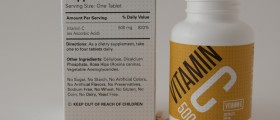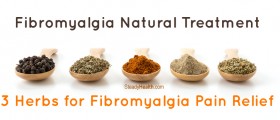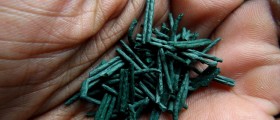
Turmeric is a herbal medication thathas been used for a great number of years as a part of the humanmedicine, directed towards treatment of various health problems. Itis also known as Curcuma longa and it has a reputation of being oneof the strongest natural antioxidants.
If you are planning on using turmericfor some purposes like the treatment for certain types of cancer, thefollowing lines will be of assistance to you.
What is Turmeric Used for?
This herbal medication has a healingtradition of about 4000 years. It is most commonly used as a part ofa treatment for infections and cancers. Additionally, it can reducethe levels of inflammation and alleviate any symptoms of digestiveproblems. However, only lately have people begun to realize thestrength and the potential of this medication, with the number ofpeople using curcuma longa rising every year.
Yet, before this was even possible,countless studies were done on animals and it test tubes in order toobtain information about the safety of using turmeric. The results ofmany different studies are conflicting between one another. Namely,some say that turmeric, even in its injectable form, is not harmfulfor the human body while other claim that this medicine is to be usedwith caution.
Either way, turmeric is widely presentin Indian cuisine, being the main ingredient in curry, giving it thedistinctive yellow color it has. Speaking of traditional usage ofturmeric, it has been a part of Ayurvedic medicine and ChineseTraditional Medicine for ages. Here, the main purpose of turmeric ispreventing or reducing inflammation, treating liver and digestiveproblems and taking care of skin diseases and wounds.
The main power of turmeric lies in itsantioxidant capabilities. Basically, turmeric extracts the freeradicals, elements which lead to the destruction and malformation ofcells, disrupting the DNA and leading to cancer and other healthproblems. Also, turmeric is known to decrease the levels of enzymeswhich lead to inflammation, while, at the same time, stoppingplatelets from creating potentially life-threatening blood clots.Yet, this latter power of turmeric was proven useless for keepingheart disease at bay. Rather, if one takes up to 4g of turmeric aday, his/her blood cholesterol levels will not be changed.
Furthermore, turmeric has been provenhelpful in situations when patients suffer form ulcerative colitis,even though it does not heal stomach ulcers.
As for cancer and alleviation of itssymptoms, this area of the effect of turmeric has been exposed toextensive research and analysis. Tests conducted on animals haveproven to be beneficial for prevention of cancers of the prostate,breast, skin and colon, due to its antioxidant features.Nevertheless, one should not engage in cancer treatment individually,using alternative medicine without previously consulting with his/herdoctor. Additionally, animal studies have shown that turmeric maycontribute to killing off viruses and bacteria of different form.Yet, the exact effect this can have on people has not beendetermined.
All in all, turmeric is widelyavailable in forms of powder, pills containing the powder, tintureand the fluid extract. In order to boost the antioxidant value evenmore, turmeric is commonly mixed with bromelain.
Benefits of Turmeric on Cancer
According to various sorts of recentresearch done in order to prove the positive effects of curcumin, itcan kill cancer cells in dishes and inhibit the growth of anyexisting cells of this type. In animals, turmeric managed to shrinkany existing tumors and prevent the creation of some non-existingones.
As for the dosage necessary in order toreap benefits of curcumin, during a clinical trial, 15 patients withcolorectal cancer were given 3.6g of this medication withoutexperiencing any possible side-effects. Due to the fact that turmericcan also be absorbed in the blood, it can be used for treatingcertain digestive problems, reaching the colon lining and treatingany forms of tumors and cancerous tissue there. Moreover, some peoplehave taken about 10g of turmeric daily without noticing any harmfulside-effects over the course of several weeks.
Therefore, as far as the cancertreatment process is concerned, curcurin, or turmeric, can promotehealing and recovery, due to its antioxidant characteristics. Yet, weshould not get ahead of ourselves, putting all of our trust intosurveys, studies and tests which were carried out in laboratories oron animals. Rather, we should wait for some real and genuinehuman-related testing to take place before claiming that turmeric is,indeed, a possible cure for cancer.
Nevertheless, we cannot deny thepromise this natural medicine holds. Turmeric continues to astonishmodern medicine, even though it has been present among the humanbeings for ages. Perhaps it is about time we finally learned moreabout this excellent and potent cancer-curing solution and its usage,managing to develop a cure which can save billions of lives on anannual basis.












_f_280x120.jpg)




Your thoughts on this
Loading...